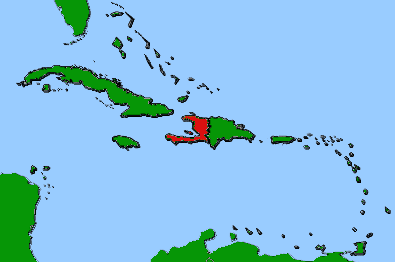
Circle the area on this map

B. Henry signed a UN-backed agreement with Kenya to bring 1,000 police officers to Haiti’s capital where the violent gangs have controlled the streets for several years. Angola, Morocco and Nigeria are on Africa’s western coast. Kenya postponed deploying police to Haiti after Henry agreed to resign.
B. About 1.2 million people live in the capital city Port-au-Prince. That is a little more than a tenth of Haiti’s population of 11.4 million. Santo Domingo is the capital of the Domincan Republic, which occupies the other five-eights of Hispaniola. Kingston is the capital of Jamaica, and San Juan is the capital of Puerto Rico.
A. Twenty-six of the alleged hitmen were from Colombia and two were Americans of Haitian descent. Honduras, Nicaragua, and Panama are in Central America, which is considered part of North America.
B. Haiti was France’s richest colony and built on the labor of African slaves, who rebelled against colonial slave masters and French control. Haiti became the second republic in the Americas after the United States, which did not recognize the new nation until 1861 when slave-holding states withdrew from the union.